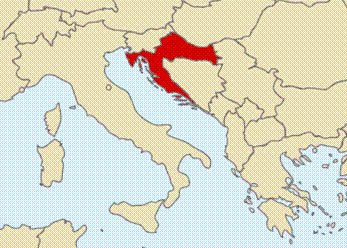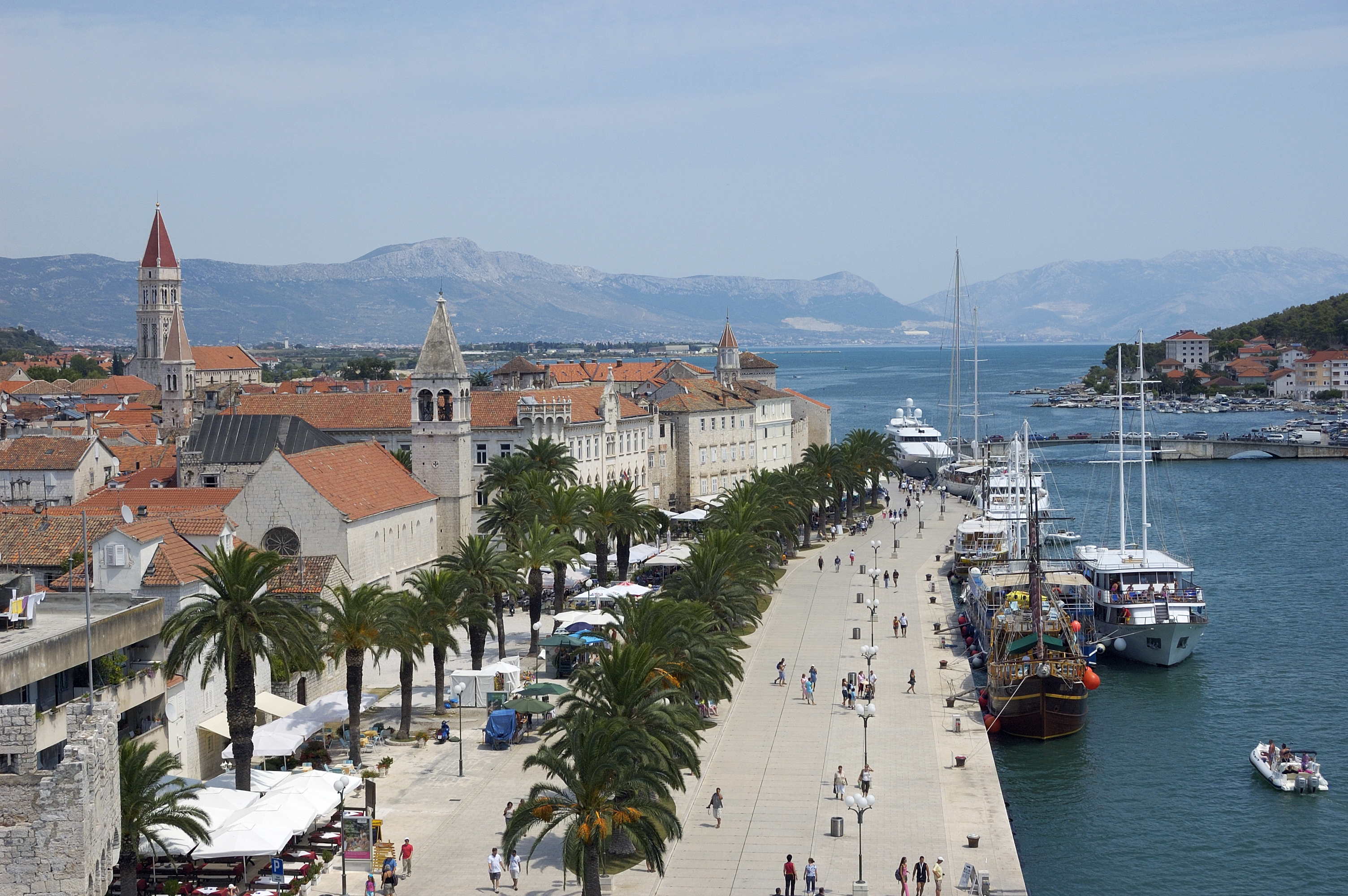 |
| ◄ | CROATIA |
| __________________________________________________________________________________________________________________________________________________________________________ |
|
|
|
|
 |
Briefing in July 2013 from the Senior European Experts looks at the accession process, the economy of Croatia and the transitional provisions in the accession treaty and analyzes: On 1 July 2013 Croatia became the twenty-eighth member of the European Union. A country of 4.4 million people in the Western Balkans, Croatia spent most of its history between the Middle Ages and 1991 under the domination of other states. Its early history after independence from Yugoslavia in 1991 was marred by vicious conflict and that conflict led to a legacy of delayed economic development, accusations of serious war crimes and often tense relations with some other countries that were also part of the now dissolved Yugoslav federation. Since at least 1998, when the Croatian Government established a Ministry of European Integration, Croatia has energetically pursued its ambition to become a member of the EU with the final accession treaty approved by its citizens in a referendum in January 2012. Croatia will have 12 MEPs in the Parliament and will have seven votes in Council (out of 352; at least 260 votes are required for legislation to pass under qualified majority). |
|
 |
Croatia applied for membership in 2003 and the European Council agreed to the opening of negotiations in March 2005 subject to Croatia fully co-operating with the ICTY by then. Difficulties over Croatian co-operation with the Tribunal went back some years and had led to the EU delaying ratification of the Stabilisation and Association Agreement with it. The Tribunal was anxious to detain and bring to trial a former general, Ante Gotovina, who was accused of war crimes during the Croatian war of independence in 1995. In the event he had not been caught by the planned start date so accession negotiations were delayed until after his detention in December 2005 (he was eventually convicted of war crimes but acquitted on appeal).
The second major problem for Croatia to overcome was its border disputes with existing EU Member State Slovenia. The most serious of these disputes related to where the sea boundary lay between the two states in the Bay of Piran, an area of the Adriatic. The difficulties over this long-standing disagreement stalled the accession process for over a year in 2009-10 as Slovenia blocked the opening of the negotiations on parts of the accession treaty. In the event, EU mediation enabled the two countries, after considerable delays and disagreements, to agree to refer the matter to a UN tribunal in 2011 which is expected to report in 2014. The outcome will be binding on both countries. In the detailed negotiations with the EU, the chapters on competition – Croatia has large state-owned industries – and on the judiciary and fundamental rights proved to be the most contentious. An independent Croatian Competition Commission has been established to handle state aid and competition questions but progress in privatising state industries, notably shipyards, has been slower than the European Commission would have liked. Croatia needed to carry out substantial work to ensure the independence of its judiciary, to tackle organised crime and corruption, to bring war criminals to justice in its domestic courts and to protect the rights of minorities, including Roma people and gay people. The most recent comprehensive monitoring report from the European Commission (October 2012) welcomed the work done so far but identified that that there was still some way to go in a number of these areas, particularly with regard to the implementation of adopted measures and protecting the rights of Roma people. The Economy of Croatia After a delay in development because of the war, Croatia achieved solid growth of four to five per cent a year until the global financial crisis with incomes doubling but since the onset of the crisis the country has been hit hard. About half its trade is with the eurozone (primarily Germany and Italy) and its banking sector is particularly exposed to the eurozone crisis because several banks are owned by institutions in eurozone states (though the banks are well capitalised). Croatia has now had four years of recession and the World Bank is predicting another weak performance in 2013. Unemployment has reached 15 per cent, higher than any of the other CEE accession states, and is mostly in the private sector after contraction in manufacturing, construction and trade. The difficulties of the economy are reflected in the public debt position. Croatia’s budget deficit is now at 5.1 per cent, the third year it has increased in a row and public debt is now over 64 per cent of GDP. One of the challenges for Croatia, given its public debt and its unusually large health service expenditure, will be how to raise the revenue needed to match EU cohesion fund grant programmes for which it will become eligible on accession. These grant programmes would be invaluable in, for example, assisting the country to broaden its economic base (15 per cent of its GDP, for example, is generated by tourism and while only four per cent of its GDP comes from agriculture, 14 per cent of the workforce are in that sector) and to improve its infrastructure. Transitional Provisions As with the accession treaties for Bulgaria and for Romania, that for Croatia provides for a five year transitional period before Croatian nationals can work in another Member State without restrictions and for a further two years if Member States are facing labour market problems. The right of free movement to travel or to study, is unaffected by this provision. The UK has published the basis of the transitional scheme it has operated for Croatian nationals from 1 July 2013. They have to apply to the Border Agency for admission to work in a particular post on the basis of the UK’s points based immigration system. In practice, they will not be admitted to work here unless they have a skill needed in the UK. Although not subject to immigration controls, Croatian nationals wanting to work in the UK will have to apply for an accession worker registration certificate. Croatians studying in the UK and self-employed people will not be subject to these employment restrictions. These types of controls have worked successfully in Britain during the transition period since Bulgaria and Romania joined in 2007. As with all new Member States Croatia has an obligation to join the Schengen zone and the euro but no timetable has been set for these developments; Croatia itself is prioritising joining Schengen. |
| Looking to the Future
One of the questions posed by this enlargement is how far Croatia is able to continue the process of normalising relations with its neighbours, particularly Serbia. The war of 1991 particularly involved Serbia – which established an ethnic Serb state within Croatia for a time in the 1990s – and the accusations of war crimes against Croatian and Serbian forces at that time are still a source of tension between the two countries today. The two countries need to co-operate with one another better over the bringing of alleged war criminals to justice and the return of refugees to their former communities. Croatia has found it easier to build a relationship with Bosnia Herzegovina (but the attitude of the Croatian – and Serbian - minority communities in Bosnia remains hard line and unhelpful to the stability of that state); this is important because the Dubrovnik area of Croatia is divided from the rest of the country by a small strip of Bosnia which leads down to the Adriatic. Croatia has been planning a bridge that would enable the two parts of the country to be directly connected without border controls but construction was stopped because of financial problems in 2012 and because of government scepticism about the value of the project. The EU has established a tougher post-accession monitoring regime for Croatia as a result of the belief that the system established for Bulgaria and Romania has failed to achieve real change. If this new approach proves more effective it will be a model for future accessions. There must be some concern that, if the nationalist parties return to power (the present government is a centre-left coalition), some of the type of problems which have been seen with Hungary could arise in future. Croatioan accession is important to the future of the EU in the Western Balkans; if this accession, the first of the countries born in major violence from the former Yugoslavia (Slovenia’s transition to independence was largely peaceful), proves successful for both sides it will set the tone for future enlargements in that region. Croatia seems likely to play a positive role in encouraging the negotiations with the other Western Balkans countries. |